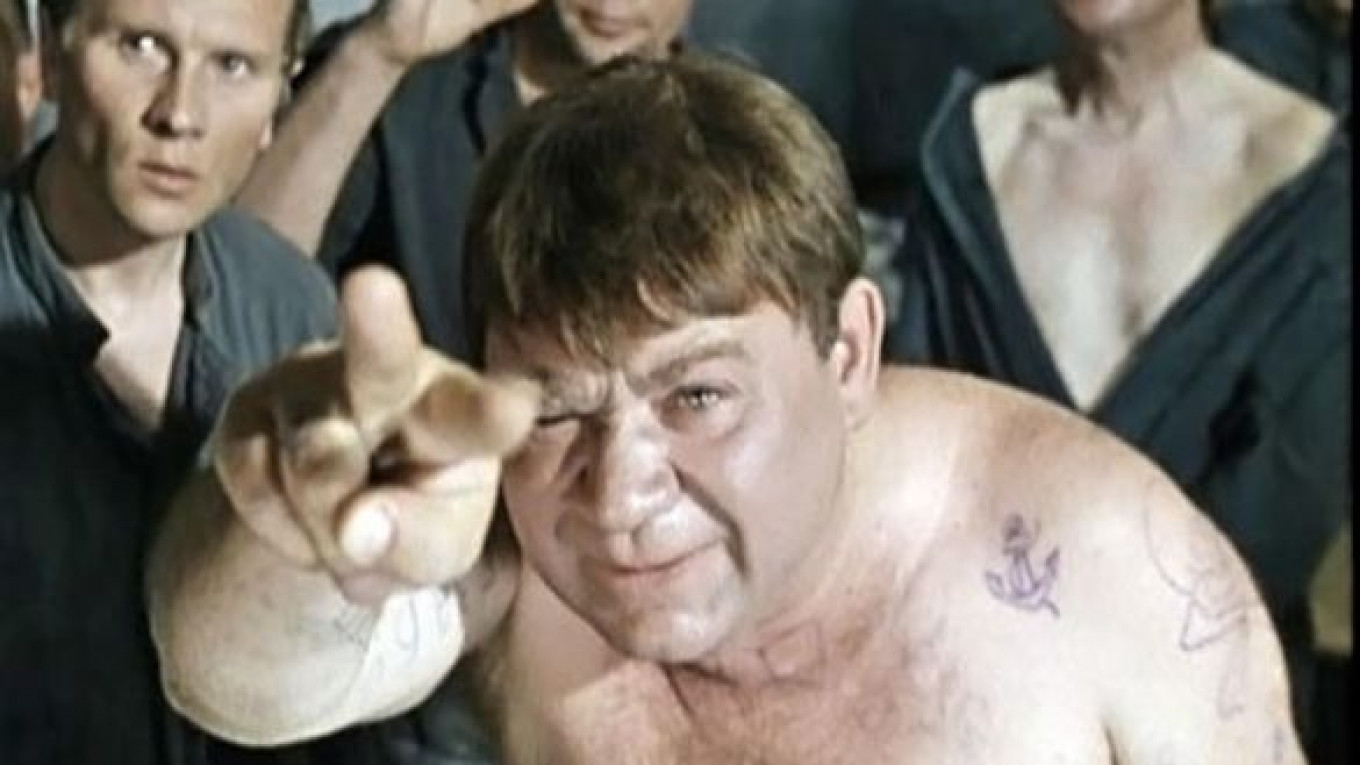Russian film lovers can explore a treasure trove of Soviet films as legendary movie studio Mosfilm has posted dozens of its most famous films on YouTube for anyone to watch for free.
The films, legendary for many Russians but often little known in the West, include the comedies of Georgian-Russian director Georgi Daneliya, “Gentlemen of Fortune” and “Mimino”; “The White Sun Of The Desert,” a much-loved adventure story set in Central Asia that is always watched by cosmonauts before a space launch; and classic melodramas such as Eldar Ryazanov’s “A Cruel Romance” with Nikita Mikhalkov and “A Railway Station for Two” starring the late Lyudmila Gurchenko.
Every week, the studio will upload five new films onto the channel, the studio said in an official press release, and expects to have 200 by the end of the year.
Other films uploaded include “Andrei Rublev” and “The Mirror,” two works by one of Russia’s greatest art-house directors, Andrei Tarkovsky.
“For us, the YouTube project is very important and interesting,” Karen Shakhnazarov, director of Mosfilm, said in a statement on the studio’s web site.
“The aim is to give users the possibility to legally watch high-quality video material and prevent the illegal use of our films,” he said.
The studio has worked with YouTube to remove pirated versions of their films uploaded onto the site.
“Most of the films will be uploaded with subtitles in different languages so people from different countries can watch Mosfilm pictures,” Shakhnazarov said.
At the moment, nearly all the films are up with subtitles in English, with only a couple found without any. The 1991 film “Tsareubiista,” or “Assassin of the Tsar,” starring English actor Malcolm McDowell as a insane asylum patient who claims to have killed the Tsar and Oleg Yankovsky as a doctor, is up in both English and Russian versions.
The channel has had more than 170,000 views since it started last week, and as of Monday, almost all of the films had more than 1,000 views. A few films see noticeable drops in viewing when the film is in two parts. Tarkovsky’s critically acclaimed 3-hour, 25-minute film about the great 15th-century icon painter saw 2,156 views of its first part and only 414 of the second part.
The most popular film so far is “Ivan Vasilievich Changes Profession,” a 1973 comedy starring acclaimed actor Yury Yakovlev that sold 60 million tickets when in Soviet cinemas and has had more than 15,000 views on YouTube already.
The channel is already in the top 50 of Russian channels on YouTube.
Mosfilm already screens 582 of its films on its web sites for free and with subtitles in different languages, and for a small payment viewers can download the films, but the YouTube channel is a far more accessible and speedy variant.
Mosfilm acquired its present name in 1935 but the studio began working in the 1920s after the Bolsheviks nationalized film production.
The studio’s symbol, the “Worker and Collective Farm Worker” statue, is shown at the start of each film and is as well-known in Russia as the fanfare and searchlight of 20th Century Fox films.
A Message from The Moscow Times:
Dear readers,
We are facing unprecedented challenges. Russia's Prosecutor General's Office has designated The Moscow Times as an "undesirable" organization, criminalizing our work and putting our staff at risk of prosecution. This follows our earlier unjust labeling as a "foreign agent."
These actions are direct attempts to silence independent journalism in Russia. The authorities claim our work "discredits the decisions of the Russian leadership." We see things differently: we strive to provide accurate, unbiased reporting on Russia.
We, the journalists of The Moscow Times, refuse to be silenced. But to continue our work, we need your help.
Your support, no matter how small, makes a world of difference. If you can, please support us monthly starting from just $2. It's quick to set up, and every contribution makes a significant impact.
By supporting The Moscow Times, you're defending open, independent journalism in the face of repression. Thank you for standing with us.
Remind me later.






